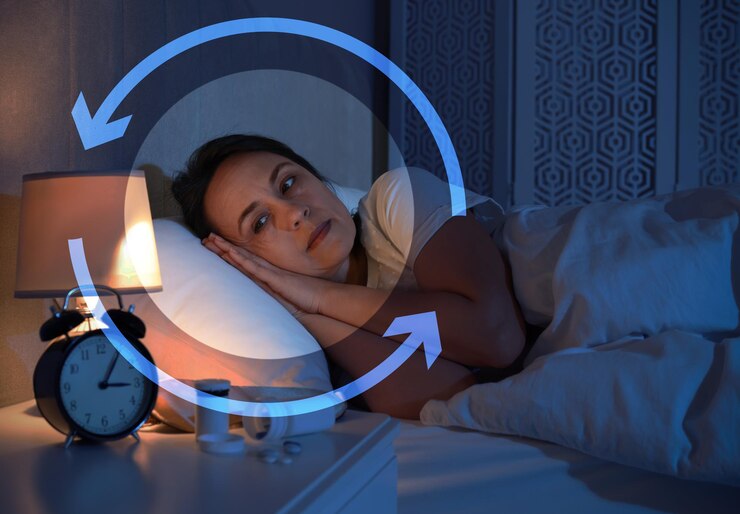
April 18, 2024, By Virginia TMJ Facial Pain and Sleep Center
Ever wonder why you feel tired even after a full night’s sleep? It could be a sign of sleep apnea, a condition where your breathing repeatedly stops and starts during sleep. While there are various risk factors for sleep apnea, weight is a significant one. Let’s look into this two-way street to understand they are connected.
How Weight Affects Sleep Apnea
Excess weight, particularly around the neck and upper airway, can worsen this syndrome.. Here’s why:
- Fatty Tissue Deposits: Extra weight leads to fat deposits around the throat. When you relax during sleep, these deposits can narrow your airway, making it harder to breathe.
- Reduced Lung Capacity: Belly fat can compress your chest wall, limiting your lungs’ ability to expand fully, further reducing airflow.
These factors together can contribute to symptoms like snoring, gasping for air during sleep, and daytime fatigue. Studies suggest that up to 90% of people with sleep disorders are overweight or obese.
Can Sleep Apnea Lead to Weight Gain?
The relationship between weight and sleep apnea is a two-way street. Emerging research suggests that it might also play a role in weight gain. Here’s how:
- Hormonal Imbalance: Fragmented sleep can disrupt the production of hormones that regulate appetite. This can lead to increased cravings for unhealthy foods and difficulty feeling full after eating.
- Decreased Energy Levels: It leaves you feeling drained during the day. This lack of energy can make it harder to exercise regularly, further contributing to weight gain.
Breaking the Cycle: Weight Loss and Sleep Apnea
The good news is that weight loss can significantly improve the symptoms. Studies show that even a modest weight loss of 10-15% can dramatically improve sleep quality.
Here are some tips for healthy weight loss:
- Focus on a balanced diet: Choose whole foods like fruits, vegetables, and lean proteins. Limit processed foods, sugary drinks, and unhealthy fats.
- Incorporate regular exercise: Aim for at least 150 minutes of moderate-intensity exercise or 75 minutes of vigorous-intensity exercise per week.
- Talk to your doctor: They can create a personalized weight loss plan that’s safe and effective for you.
Taking Charge of Your Sleep and Weight
If you suspect you might have sleeping disorder or are concerned about the weight-sleep apnea connection, it’s crucial to consult a doctor. They can diagnose and recommend the best course of treatment, which might include:
- Lifestyle Changes: A healthy diet and regular exercise are essential for weight management and improving sleep quality.
- CPAP Therapy: This machine uses continuous positive airway pressure to keep your airway open during sleep.
- Surgery: In some cases, surgery might be recommended to remove excess tissue blocking the airway.
Virginia TMJ Facial Pain and Sleep Center: Your Partner in Healthy Sleep
At Virginia TMJ Facial Pain and Sleep Center, we understand the profound impact sleep apnea can have on your overall health and well-being. Our team of experienced professionals is dedicated to providing comprehensive diagnosis and treatment options. We work closely with you to develop a personalized plan to address both your sleep disorders and weight management goals, helping you achieve better sleep and a healthier you.
Remember, a good night’s sleep is vital for your physical and mental health. If you’re struggling with sleep apnea or weight concerns, don’t hesitate to seek professional help. Take charge of your health and wake up to a brighter, more energized you!
